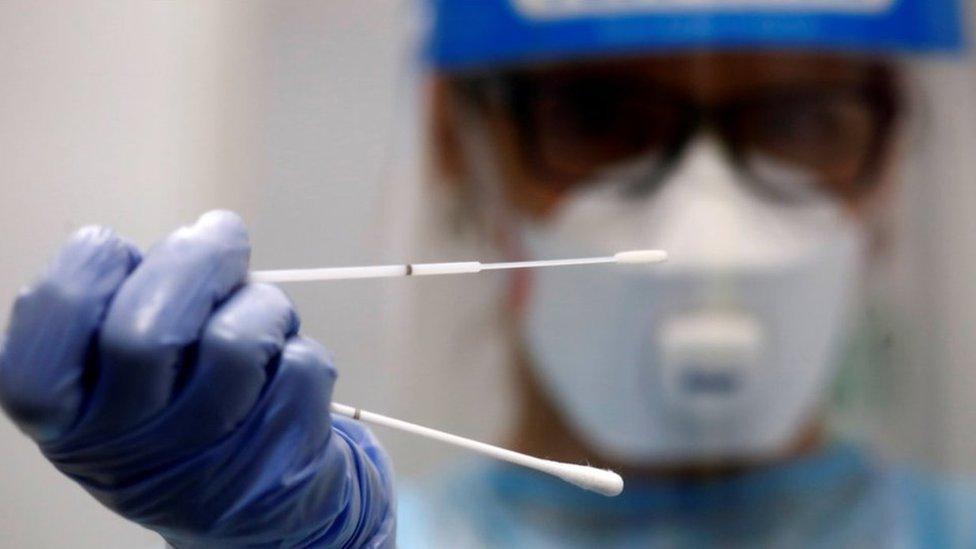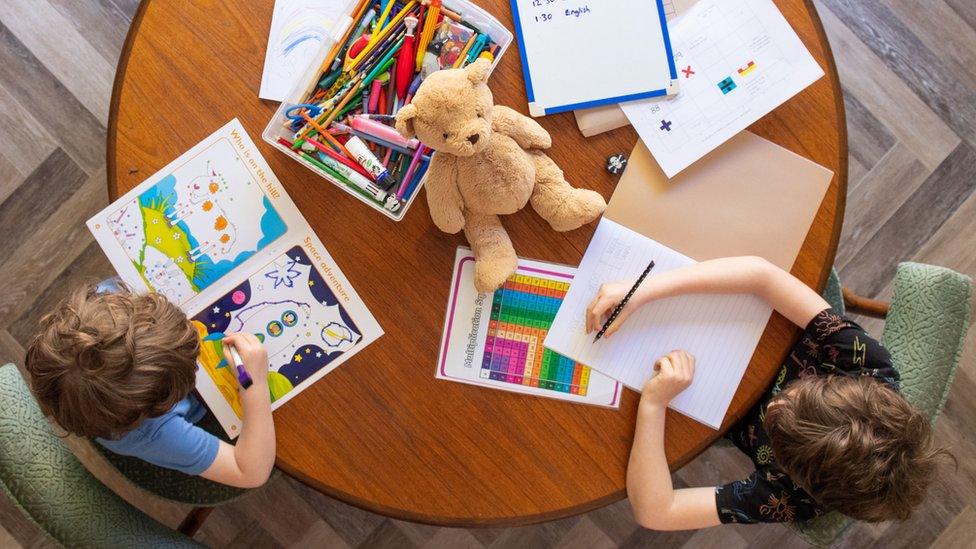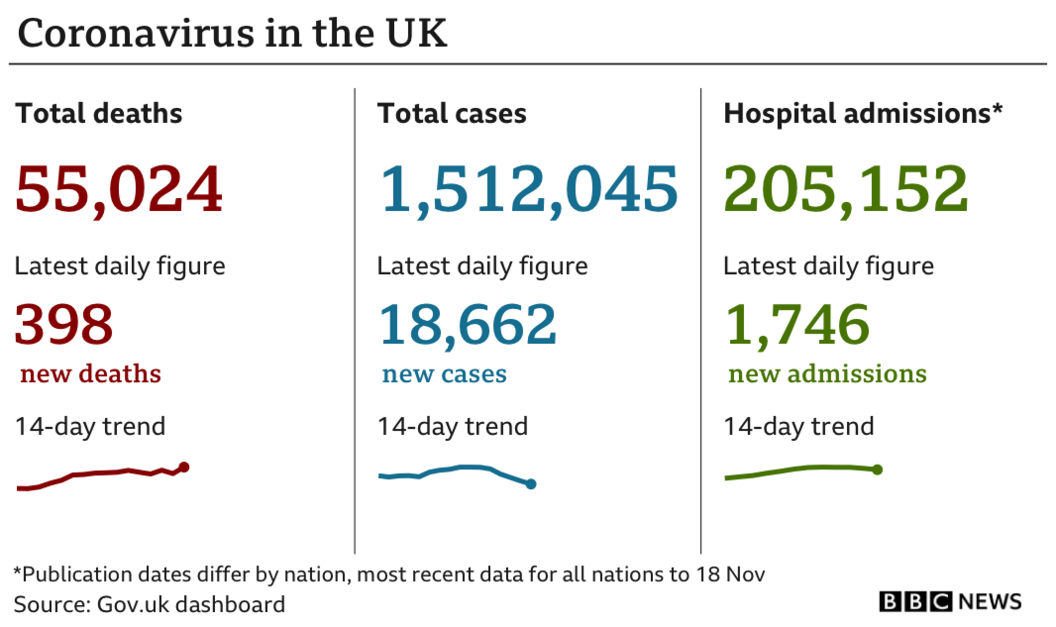Covid-19: Oxford vaccine, lockdown latest and Words of the Year
- Published
Here are five things you need to know about the coronavirus pandemic this Monday morning. We'll have another update for you at 18:00 GMT.
1. Oxford vaccine news
The vaccine developed by the University of Oxford stops 70% of people developing Covid symptoms. The news, just announced, is both a disappointment and a triumph - vaccines by Pfizer and Moderna showed significantly higher rates of protection (95%), but the Oxford jab is far cheaper and is easier to store and get to every corner of the world than the other two. That means it'll still play a significant role in tackling the pandemic if approved by regulators. See more on where the whole vaccine mission is up to.
Get a closer look at how scientists develop a Covid-19 vaccine

2. More details on what happens after lockdown
Gyms and shops are expected to be able to reopen in all areas of England and the ban on grassroots sport is set to be lifted. Last orders in pubs and restaurants will still be 10pm, but diners and drinkers will have another hour to finish up. These relaxations will go hand-in-hand with a toughening of the tier system. Boris Johnson will explain more later, but you won't find out what tier your area is in until Thursday. And UK-wide arrangements for Christmas won't be revealed until tomorrow at the earliest. BBC deputy political editor Vicki Young says one option is for three households to be allowed to get together for up to five days.


3. Mass testing and change to self-isolation
Rapid mass testing - delivered with military support - will be used in all tier three areas of England once lockdown ends. We also understand a new system of repeat testing could be on the way. The close contacts of confirmed cases will be able to take a test every day for a week and will only need to self-isolate if they test positive. If trials are successful, the new procedures be rolled out to care homes and the NHS in December, and the general public in January. Read more on some of the problems the test-and-trace system has faced.


4. Home schooling up significantly
A survey of 151 councils suggests there's a big rise in the number of children removed from school to be home educated this term. Local authorities said fears about Covid-19 was the top reason parents gave, and many families had indicated they would return to school once the pandemic was over. Others reported that some parents said they had made the decision because they felt so positively about having their children home during lockdown.


5. 'Unprecedented' 2020 too much for one word
This year has seen so many seismic events that Oxford Dictionaries has expanded its word of the year to encompass a whole bunch. They include Covid-19, WFH, lockdown, furlough, Black Lives Matter and moonshot. Casper Grathwohl, from OED, said he'd "never witnessed a year in language like the one we've just had".

Two words that have seen a growth of more than 300% since March are "remote" and "remotely"


And don't forget...
Find more information, advice and guides on our coronavirus page.
Plus, one of the most asked questions about coronavirus is surely, "What's my risk?" BBC News online's health editor Michelle Roberts tries to answer it with the help of three "volunteers" - Amy, Merlande and John.


What questions do you have about coronavirus?
In some cases, your question will be published, displaying your name, age and location as you provide it, unless you state otherwise. Your contact details will never be published. Please ensure you have read our terms & conditions and privacy policy.
Use this form to ask your question:
If you are reading this page and can't see the form you will need to visit the mobile version of the BBC website to submit your question or send them via email to YourQuestions@bbc.co.uk, external. Please include your name, age and location with any question you send in.

LACKING MOTIVATION?: 6 hours of dance hits to help you stay energised all day long
THE NAKED SCIENTISTS: Why are people catching coronavirus on purpose?
